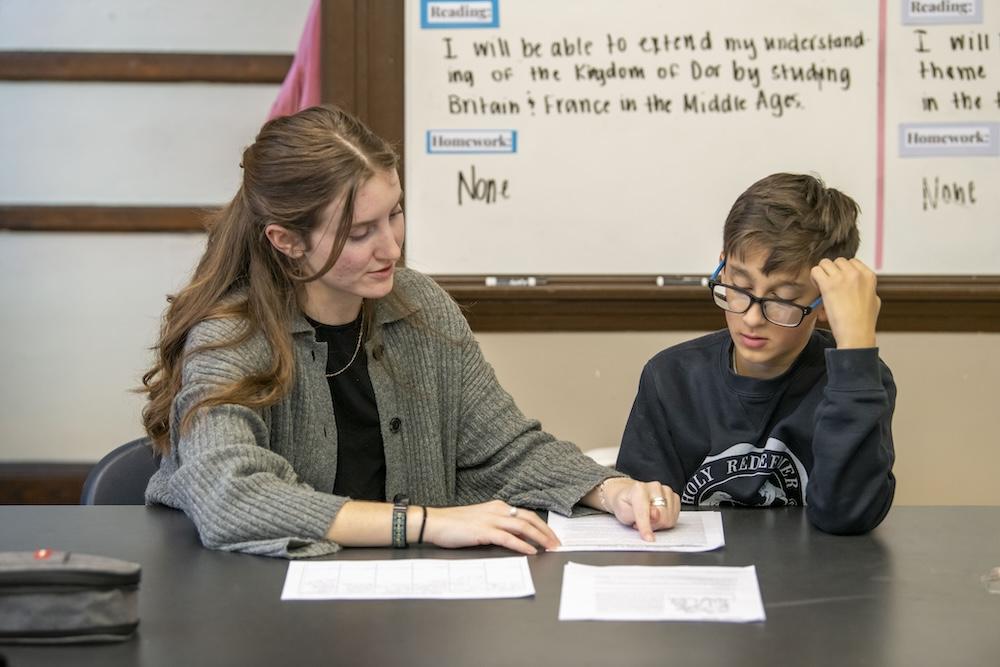It is impossible to talk about the single story without talking about power. There is a word, an Igbo word, that I think about whenever I think about the power structures of the world, and it is "nkali." It's a noun that loosely translates to "to be greater than another." Like our economic and political worlds, stories too are defined by the principle of nkali. How they are told, who tells them, when they're told, how many stories are told, are really dependent on power.
- Chimamanda Ngozi Adiche
How many times have you heard another person lauded for being humble? If you think about it, there’s something rather odd about such a compliment. Would a humble person really want to know that you think that they’re humble? Isn’t humility partially about abandoning ego? What about that quote that’s constantly misattributed to CS Lewis – “Humility is not thinking less of yourself, it’s thinking of yourself less?"
Several weeks ago, I was granted a very special privilege. The acclaimed Nigerian writer Chimamanda Ngozi Adiche had come to Notre Dame to deliver a lecture, and I was invited to join a small dinner party at the end of her visit. This was a great honor for many reasons, chief among them being the role that Ms. Adiche’s lecture “The Danger of a Single Story” has played in my personal and professional life. If you aren’t familiar with this piece, I strongly encourage you to watch it. In it, Ms. Adiche surfaces the fundamental indignity that we impose on other people when we reduce the complex, technicolor set of narratives that makes up a person’s life to a single, uniform, monochrome story. This lecture has become an urtext of sorts in the work that we do with ACE Teaching Fellows to encourage a disposition of Christocentric Cultural Responsiveness in the Catholic school communities that we serve.
As I sat down to dinner with Ms. Adiche I found myself quite unsettled. Although I have been fortunate to meet many people that I admire, there was something very different about this particular encounter. It went beyond my personal appreciation for her work as a novelist. I felt a responsibility to speak on behalf of the ACE teachers and colleagues that I have been so blessed to work with - to express our sincere gratitude for putting into words a disposition that is at the very heart of what we do in service to Catholic schools and schoolchildren. In addition, I was very aware that this was a dinner of very important and interesting people and I probably couldn’t add much to the conversation.
The dinner opened with the standard fare of pleasantries and introductions. I did my best to express my gratitude to Ms. Adiche for the role that her work had played in my own vocation and the work of ACE. I suspect that I was much less coherent that I’m allowing myself to remember now. As the introductions ended and we entered into more substantive conversation, Ms. Adiche put on a clinic in the art of conversation. She engaged every person at the table in lively badinage – probing on their personal background, on where they grew up, on their personal convictions – it was truly breathtaking. As the evening came to an end, I realized that she had found a way to break loose of the “single stories” that she could have very easily allowed to dominate the conversation.
Sitting with Ms. Adiche, I was in awe of both how much she knew and how much she wanted to know. She allowed everyone at that table to tell their own story. In the spirit of the Igbo term “nkali” articulated above, she humbled herself and dignified each of us.
I share this because it taught me something about humility. A key feature of humility is that it’s forged by a willingness to be humbled. In my experience, it is very rare for an individual to be innately humble. Instead, we grow in humility as we allow ourselves to be humbled. Doing stuff that will make me more courageous? Sure, sign me up. Something that will make me more visionary? Great. But volunteering to get humbled? I don’t know about that.
This is particularly challenging in an increasingly polarized, self-obsessed society. So many encounters in the public sphere are oriented toward rancorous debate instead of genuine dialectic. How often do we see a conversation summarized as one person “owning” the other?
Let us model of spirit of humility to our colleagues, our students, and their families. As Christ has risen so that we may die no more, let us embody St. Ignatius of Loyola’s Suscipe:
Take, Lord, and receive all my liberty,
my memory, my understanding,
and my entire will,
All I have and call my own.
You have given all to me.
To you, Lord, I return it.
Everything is yours; do with it what you will.
Give me only your love and your grace,
that is enough for me.
 Alliance for Catholic Education
Alliance for Catholic Education
